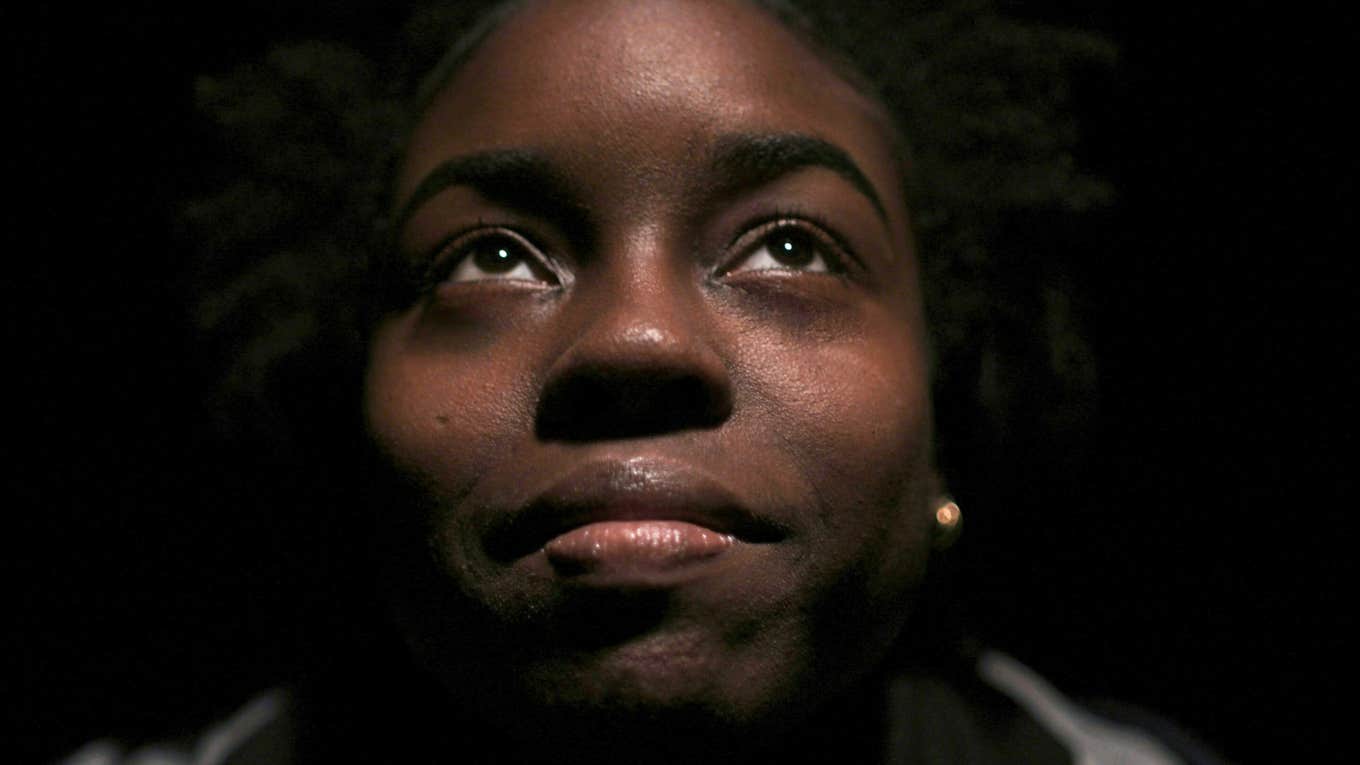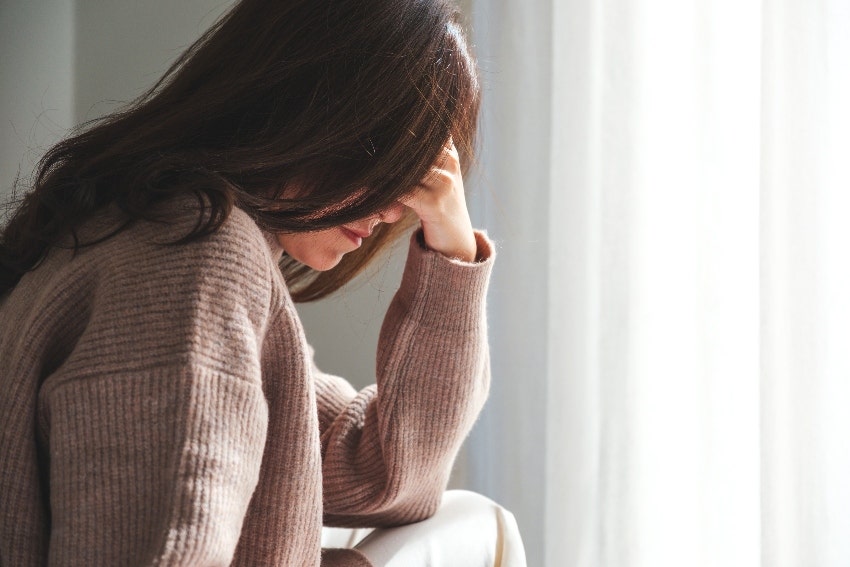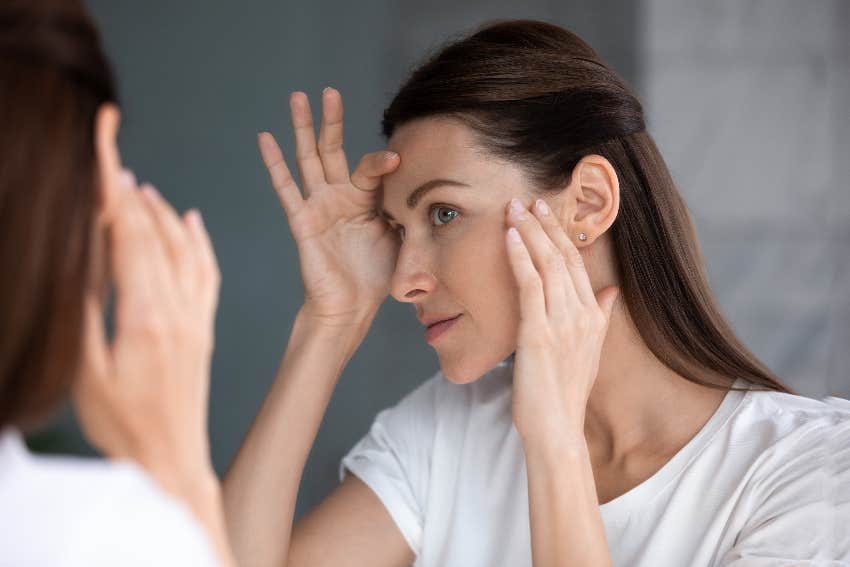5 Truly Painful Things That Only Happen To Your Body After You Turn 25, According To Research
How your body betrays your age when you hit your mid-twenties.
 Beth Tate | Unsplash
Beth Tate | Unsplash I've always been fairly in sync with my body: I know when it's overworked when it needs a good sweat sesh, and even when it needs to let loose with a drink or two. I was not, however, prepared for the unexpectedness of turning 25.
Before hitting the milestone birthday, a few older friends and family jokingly told me to "just wait . . ." — for the aches, the wrinkles, and the supposed weight gain — that starts to happen in your mid-20s. Turns out, it wasn't a joke at all, but a real wake-up call to the process of aging.
Ahead, is a full breakdown of the painful things that happened to my body after turning 25, both physical and mental, with insight from professionals on how to help with these harsh realities.
Here are the truly painful things that only happen to your body after you turn 25:
1. A slower metabolism
There once was a day when I could eat cookies like I was storing up for Winter and see little to no change in body composition, mood, or energy level. Unfortunately, that was not the case when my mid-20s came around.
"Most people notice that their metabolism slows as they age and that more 'work' is needed to maintain a size they were when younger," Ariane Resnick, CNC, explains. "This is in part due to hormonal shifts that occur and also to the fact that we lose muscle mass as we age," Resnick said that genetics and lifestyle are to blame, too, so it's best not to be so hard on yourself when it comes to the issue.
"Examine your diet and begin to fill your meals with more whole foods and fewer processed ones; they will keep you fuller for longer, regardless of metabolism," Resnick says. "Of course, the more physically active you are, the better, as consistently preventing your muscle mass from decreasing or helping it to grow will help your metabolism stay up."
2. Severe hangovers
 Farknot Architect / Shutterstock
Farknot Architect / Shutterstock
Drinking after the age of 21 . . . dun dun dun. I've heard time and time again that drinking gets harder after college and beyond, but it never clicked until the hangovers began hitting me like a ton of bricks. Even worse, I began getting headaches while still out or at happy hour.
Fortunately, it's not just that I'm getting boring and would rather not be slinging back margaritas. Instead, studies show the liver becomes less and less able to break down the toxicity of alcohol as we age.
Plus, our immune system weakens and makes us less viable for recovery from anything difficult on our bodies. Bring on the hot water with lemon and fuzzy socks from here on out.
Research from a 2023 study indicates that hangovers tend to worsen with age primarily due to a decline in liver function, decreased body water content, and changes in body composition. As you get older, your body metabolizes alcohol slower, leading to a higher concentration of alcohol in your bloodstream and more severe hangover symptoms. Older adults may be more prone to vitamin and mineral deficiencies that impact how the body metabolizes alcohol.
3. Less energy
Gone are the days of jumping from work to Spin to dinner to drinks. After turning 25, I noticed my energy levels plummeted significantly, especially when it came to my workouts.
"As we age, the maximum intensity at which we can work will decline and we don't recover as quickly from workouts as we used to," Geralyn Coopersmith, Flywheel chief content officer, explains. "Older joints don't tolerate impact as well and we can find ourselves stiffer and sorer than we are normally. Most of us will need to adjust the way we work out over time."
When 25, that's the name of the game: "adjust." "Listen to your body," Coopersmith urges, above all else. That means allowing yourself to rest, modifying a workout regimen, or seeking medical help for any issues as needed.
4. Wrinkles and dry skin
 fizkes / Shutterstock
fizkes / Shutterstock
It may sound dramatic, but it seemed as if I woke up on my 25th birthday and looked in the mirror to magically find the new crow's feet and forehead wrinkles.
According to Dr. Parks, dermatologist and founder of DermWarehouse, I wasn't delusional. "It's normal at even a young age of 25 to start seeing the signs of aging and it's mostly a function of sun damage over the years," he explains. "I see a lot of patients at this age and even younger that have wrinkles and even skin cancer."
Of course, the sun is the biggest culprit for those sudden wrinkle appearances. "I would say about 90 percent of skin aging is from the sun. The other 10 percent is genetics and muscle movement," Dr. Parks adds. "Forehead wrinkles are often caused by muscle movements. If you're very expressive, you can start to see those coming up sooner."
Does this mean we should limit our facial expressions in our 20s? That's unlikely. Instead, "Use sunscreen, wear sun-protective clothing, don't stay out during peak hours of the day, always wear a hat, and find a good skin care regimen," Parks suggests.
As we age, wrinkles and dry skin develop primarily due to a natural decline in the production of collagen and elastin, the proteins that give skin its structure and elasticity. A 2016 study explained that this is combined with thinning the skin's dermal layer, leading to decreased moisture retention and increased visibility of facial expressions that create creases over time. This process is further accelerated by sun exposure and environmental factors like pollution.
5. Thinning hair
Here's one I truly never saw coming. I began noticing my hair appearing less full and vivacious and more strands in the shower drain.
Luckily, I'm not alone. According to research, about one-third of women experience some kind of hair loss, whether minor or serious, at one point or another. Several things can contribute to extra strands leaving your head, such as medications, medical conditions, and stress. Since I don't take any medications and I'm assuming I'm in good health, I'm pointing to stress as the reason for my hair loss.
It makes sense that it happened at this time, too — 25 is a milestone year when one's career, money, relationships, and overall personal well-being are expected to be "settled," so stress will ensue when things aren't exactly in place as planned. To help with the anxiety that comes with life, I'm creating a five-year plan and declaring 30 as the new 25.
Nichole Fratangelo is a freelance writer and copywriter. She has appeared in the Huffington Post, Insider, Reader's Digest (U.S.), MindBodyGreen, and more.

